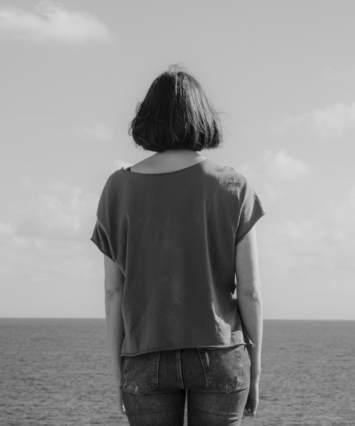Eric Turpin was born in Stradbally, Co. Laois in central Ireland in 1919, the middle of three brothers. His mother died in childbirth when his younger brother was born, and Eric’s father moved the family to Dublin when Eric was 11. There he later attended Trinity College and graduated in Chemistry.
Then, as he says, ‘suddenly and unexpectedly my life was disrupted by religion’. Although a life-long member of the Anglican Church of Ireland, it was in a Dublin Methodist church that ‘I happened to meet up with a group of Trinity students who presented me with the revolutionary thought: “God has a plan for the world and everyone has a part to play and if you wanted to find your part he would tell you.”’
While brushing his teeth the following morning, Eric looked in the mirror and a very clear thought came to him: ‘Behave decently to your father.’
Eric’s father, by now in his mid-70s, would repeatedly ask Eric the same question about his day. Eric used to fly into a rage. ‘I apologised to my father, and so began my religious life.’
After graduation, he went to Belfast for the first time and worked for five years as a research chemist, work that he loved and which included, during the post-war food shortages, trying scientifically to make egg white without the aid of a hen!
Listening for and obedience to the inner voice of God had become an everyday priority and one day while attending a religious play in London, Eric had a clear thought: ‘You are not doing your maximum to remake the world and you are not in the right place to do it.’ He decided to give all his time to MRA on a voluntary basis and soon found himself part of a team who were trying to bring a new spirit to the docks of London at the time of a national strike in 1950. ‘I soon discovered that I was on a steep and rapid learning curve,’ he recalled. He gradually got to know the leaders in the unions and noticed that many of them were Irish – and that they had an interest in the world beyond the UK. So whenever people from abroad were visiting on MRA business, Eric and his colleagues would introduce them to the dock-workers’ leaders.
The situation was complicated with official and unofficial dockers’ leaders; and Communists trying to exploit the tensions for political ends. But some of the dockers found the courage to stand up for what they felt was right. As Eric recounted in ‘He was my friend’, ‘If you could give men a sense of hope that they were not alone, then sound men would sometimes have the courage to stand up and be counted.’
There followed several years of working with MRA alongside dockworkers in Australia and the USA. By the early 1970s, Eric was living in Northern Ireland. He invited to Belfast one of his great friends from the Longshoremen’s Union, Fred Small, an African American from the heart of the Brooklyn docks in New York. Later Fred told him, ‘You know, Eric, I learnt more about race relations in those three days I spent with you in Belfast than I did in all my life in the United States. I thought prejudice was about colour.’
During the Troubles in Northern Ireland, Eric with other Protestants, Catholics and friends from England met together in weekly Bible studies at the Clonard Redemptorist Monastery in west Belfast. This is described in detail in Dr Roddy Evans’ book, ‘Where I sensed the Breath of God: a footnote in Anglo-Irish history’.
He and three other graduates of Trinity College, Dublin, were full-time IofC workers and members of the Church of Ireland, the Church of the Protestant Ascendancy that ruled Ireland on behalf of England from the late 17th century and which had introduced draconian laws that led to famine, deaths, and mass emigration. In May 1977 they published a statement covered in the Irish Times and other newspapers apologising for these and many other misdeeds which affected the Irish Catholic and Presbyterian populations.
The Clonard meetings unexpectedly revealed that the fundamental issue was the unhealed relationship between Britain and Ireland. In this they were supported by the Rev John Austin Baker, Chaplain to the House of Commons, who had given a powerful sermon acknowledging England’s misdeeds in Ireland. Later as Bishop of Salisbury he became the first Anglican Bishop to preach at Clonard and at the Catholic Cathedral in Armagh. Eric strongly believed that with honesty and repentance about historical wrongs, Britain and Ireland could together give something great to the world.
Fr Alec Reid CSsR from Clonard Monastery, which was described by a Belfast journalist as ‘the cradle of the peace process’, led an initiative that resulted in a breakthrough in the peace process and eventually to the Good Friday Agreement of 1998.
English


